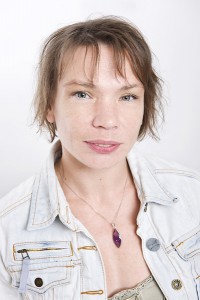Imagine this: you have a dream. An actual dream not a phantasy about how life could be. Now you want to know What does my dream mean?. This article will give you a head start.
What does my dream mean?

First of all there are, in general, four ways of looking at a dream: dreams as “messages from the gods”, dreams as signs from the body, dreams as random neurological chit-chat from the brain and (my personal favorite) dreams as an invitation to get creative. I explore this subject into depth in this post.
If you look at the history of dream sharing and dream interpretation the first category was the most popular.
In “An Encyclopedia of Shamanism” Volume 1, Christina Prati shares with us: Traditionally, shamans and “grandmothers” were the respected specialists in dream interpretation and enactment. The most frequently consulted dream interpreters were the “grandmothers”, older women past menopause who were respected faith keepers and clairvoyants. Traditionally, they might use scrying with water or fire to help divine and clarify the meaning of the dream”.
In the 20th century, Jung and Freud wanted to use the “New divinity” that emerged scientific. They wanted to study the “divine messages” given in the dream and interpret them through scientific methods they emperically developed. Like the ancient grandmothers, they interpreted the dream for you. All you had to do was to relax on a sofa and listen to your doctor, who told answered for you the question: “what does my dream mean?”
Now it is very common to tell a dreamer that he/she is the only one that can interpret his own dream. I remember how disappointed I felt when a friend told me this. I had no clue how to start. Let me take you back in time again to explain how this “you are the only one that can explain your dream” originated from those therapist that told you what your dream meant. There was a lot of emancipation going on. The therapists of the old days were the authorities, but in the 70’s of last century much more people could attend college. And a lot of them became therapists. Now what is meant by: “you are the only one that can interpret your dreams?”
First: write down your dream. it will give you the opportunity to distance yourself from the story. A distance that you need to clearly analyse the story.
Second: write down all the symbols of your dream story. Everything that stands out, everything that does not stand out, everything that has emotion in it.
Step three: look at the list and write down the first thing that jumps in your mind.
Step four: re-write the dream with those associations and see what this story has to tell you.
This is just one way of looking at dreams. If you are ready for some advanced methods you can read this article. Of course I know there are a lot of other ways to look at dreams. I am not against looking in dream dictionaries. If a dream dictionary gives you another idea about a dream, then that is perfectly alright. Anything you do with a dream that enhances your creative thoughts, anything that gives you a different perspective on who you are and on what you can be is a gift. The gift of the dream.
THIS CONTENT IS CREATED BY SUSANNE VAN DOORN, AUTHOR AND OWNER OF MINDFUNDA; MAKING THE FUNDAMENTALS OF PSYCHOLOGY, MYTHOLOGY AND SPIRITUALITY EASY TO USE IN YOUR PERSONAL LIFE!
What is Mindfunda about?
My name is Susanne van Doorn, I am a Dutch psychologist, blogger and author. I have been working with psychology, dreams and mythology ever since I finished my study in psychology at Tilburg University. I made this independant site to share insights, and recent scientific articles about the brain, dreams, and mythology for use in your personal life.
This posting is categorised as Dreamfunda:
Everything you need to know about dreams. Practical How to’s, the latest scientific research, the most commonly used ways to attach meaning to dreams. This and more is given to you for your everyday use in this part of Mindfunda
Read more about Mindfunda here, or visit our Courses Page.
Ready for more free Mindfunda content on ‘#DREAMS‘?

Understanding Power and Chaos in the Myth of Trump

The Myth of Trump: A Journey into the Shadows of the Self and the World

The Meaning of Boots in Dreams – Exploring Symbolism and Interpretation
Comments or suggestions? Share your thoughts:



